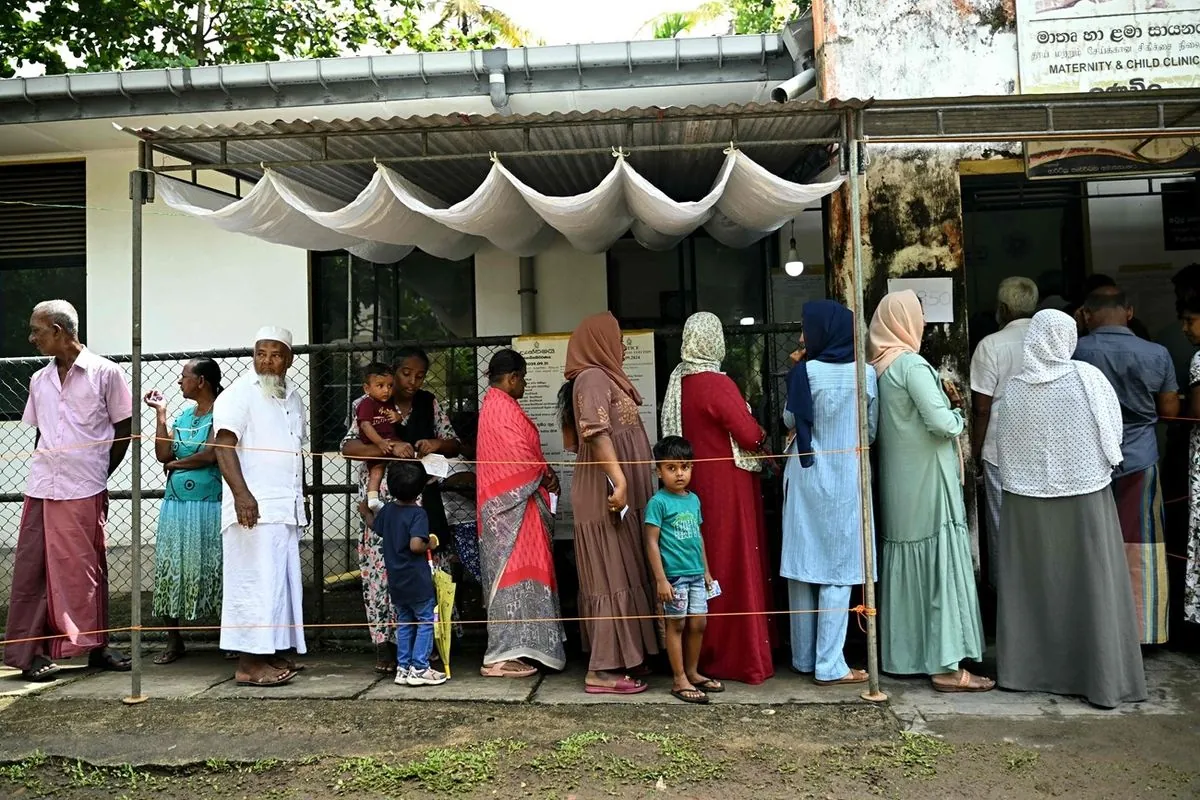Sri Lanka, an island nation in South Asia with a population of approximately 22 million, is preparing for a pivotal election. This marks the first time citizens will cast their votes since the country's severe financial crisis in 2022. Approximately 17 million Sri Lankans are expected to participate in this crucial democratic process, which will significantly impact the nation's economic recovery.
The 2022 debt default led to widespread protests, resulting in the resignation of then-President Gotabaya Rajapaksa. The current president, Ranil Wickremesinghe, who assumed office following Rajapaksa's departure, is now seeking re-election. However, he faces stiff competition from over three dozen candidates, all vying to convince voters of their ability to guide Sri Lanka through its financial recovery.
This election is particularly significant due to its potential impact on Sri Lanka's economic future and its geopolitical relationships. The country, known for its biodiversity and UNESCO World Heritage Sites, has been grappling with severe economic challenges in recent years. The implementation of austerity measures following the financial crash has become a central issue in this election.
Three main candidates have emerged as frontrunners:
- Incumbent President Ranil Wickremesinghe (75), advocating for the continuation of the IMF program and associated austerity measures.
- Opposition leader Sajith Premadasa, proposing to lower taxes and renegotiate the IMF bailout.
- Socialist candidate Anura Kumara Dissanayake, promising to renegotiate with the IMF, combat corruption, and initiate social reforms.
The election has brought to the forefront the tangible consequences of global financial institutions' influence on developing economies. Sri Lanka's economy has shown signs of improvement, with slowing inflation and growth exceeding expectations. Recently, the country reached a draft agreement to restructure $12.5 billion in foreign debt. However, poverty levels continue to rise, with over a quarter of the population living below the poverty line.
Foreign investment has become a key focus of the election, with China and India closely monitoring the situation. For decades, Chinese loans have funded major infrastructure projects in Sri Lanka, contributing to its debt burden. India, with support from the United States, has been working to increase its influence in the region.
"We recognize that India and China have global ambitions. We aren't averse to investment at all. We just want it done the proper way. We don't want any corruption."
The outcome of this election remains uncertain, with analysts predicting a tight race. Early surveys suggest Dissanayake may be leading, particularly among those who participated in the 2022 protests. However, supporters of incumbent Wickremesinghe argue that discontinuing the IMF program could have serious repercussions for Sri Lanka's economic recovery.
As Sri Lanka, a country with a rich cultural heritage and a literacy rate over 90%, heads to the polls, the world watches closely. The results of this election will not only shape the nation's economic future but also influence its role in the complex geopolitical landscape of South Asia.
